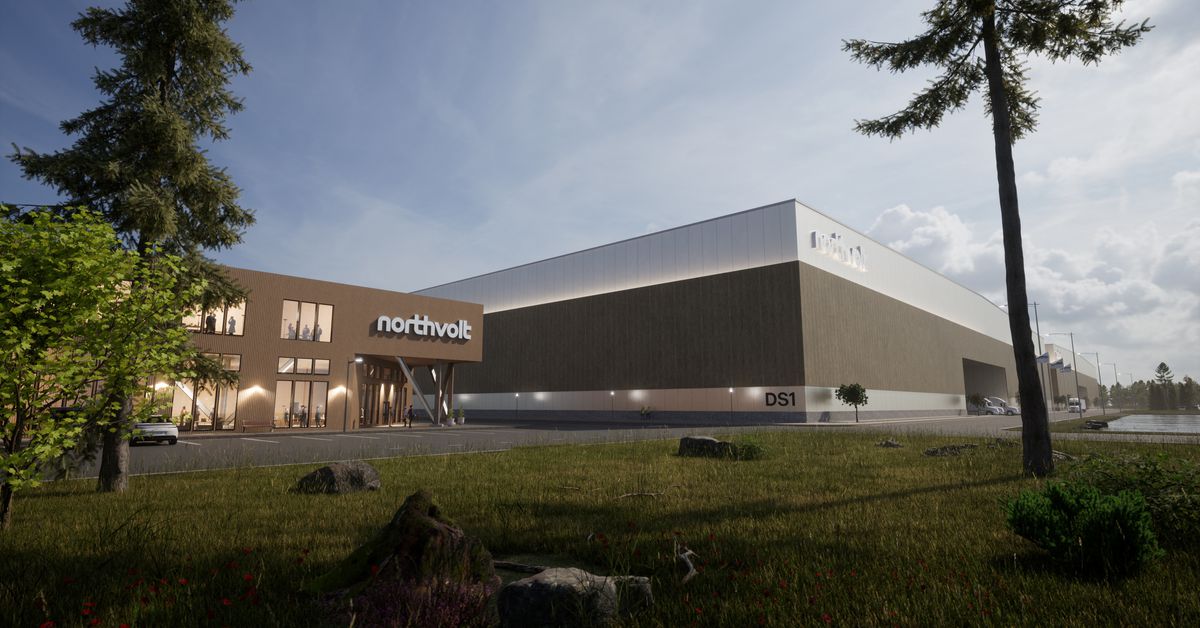- cross-posted to:
- quebec@lemmy.ca
- cross-posted to:
- quebec@lemmy.ca
Great news! We should be leveraging our size and resources to lead the way for the green transition.
Can’t wait to hear why this is, “TrUdEaU bAd!”
TrUdEaU nEeDs HeLp fRoM oThEr cOuNtRiEs tO cReAtE jObS cuz hE cAnT cReAtE jObS fOr uS cAnAdIaNs bY HiMseLf! SwEdEn lIkEs cAnAdIaNs mOrE tHaN TrUdEaU cUz hE oNlY cArEs aBoUt hIs hAiR!!!
Something like that, I’m sure.
He is bad overall, but not everything he does is bad. There is a difference. In this instance you are just fanning the flames of political hate for no reason.
No, I’m observing that that Trudeau could solve world hunger and bring about world peace and there are still people who would find a way to say, “TrUdEaU bAd!”
This is the best summary I could come up with:
STOCKHOLM/TORONTO, Sept 28 (Reuters) - Swedish lithium-ion battery producer Northvolt said on Thursday it would open a $5.2 billion gigafactory in Quebec, the largest ever investment in the Canadian province and the latest in electric vehicle battery manufacturing capacity in the country.
Northvolt already has several European factories and is among a handful of players building a domestic battery industry to fight off the dominance of Asian manufacturers.
It has raised more than $9 billion in debt and equity since 2017 in its bid to become Europe’s biggest battery manufacturer, including $1.2 billion last month from investors including Canada Pension Plan and Ontario Municipal Employees Retirement System.
He pointed to the availability of sustainable energy, access to skilled workers, proximity to natural resources and other factors such as the attitude of the governments as reasons for the decision.
The $369-billion U.S. Inflation Reduction Act (IRA) passed last year has prompted companies including Northvolt to look across the Atlantic, attracted by hefty subsidies and cheaper energy.
“IRA took the industry by surprise,” Cerruti said, adding Northvolt had decided to put together a site selection team around a year ago, accelerating the process earlier in 2023.
The original article contains 373 words, the summary contains 194 words. Saved 48%. I’m a bot and I’m open source!
With all these supply chains coming onshore, where’s the Chinese EVs? Whereas Chinese companies have been able to produce $10000 EVs, other car companies struggle to produce cars at twice the cost. EVs aren’t affordable in Canada without subsidies, but affordability is the single biggest driver behind purchasing decisions as we transition from fossil fuels to electricity.
Those $10,000 EVs all have one or more of the following issues:
- Don’t meet Canadian safety standards
- Have a top speed around 60-80 km/h
- Are just an electric bike/trike with a box around it
(3) isn’t inherently an issue - I’ve seen some vehicles like that around - but it does limit the potential audience significantly.
The $10000 BYD Seagull has a respectable top speed and is definitely a car, but hasn’t tried to get certified in Canada, that is true. However, other BYD cars (the Dolphin, for example) have met accreditation standards in North America, Australia, and Europe.
The Dolphin is a $30k USD vehicle, though I’d love to see it come to Canada. I’m not very familiar with the Seagull, but it looks like it’s not available outside of China, which is probably an indication of its likely safety rating. If it’s safe, I’m not sure why it’s not available in the Western countries where they already have a presence.
The Dolphin was a 15k vehicle inside China lol.
China sells their minerals/materials at cost to keep manufacturing costs down
[citation needed]
Edit: it’s not loading for me but it might be here https://www.nbr.org/publication/chinas-control-of-rare-earth-metals/#
I will see if I can find a source but
My father who works high up in a military tech company.
They build as much as they can in China (without losing US contracts) then bring it to Canada to finish the parts they can’t do in China before moving it to the US to assemble and put a “made in USA” sticker on it
For me; the company I’m at gets all of our metals from China because it’s so much cheaper to ship it here
Where’s the indication that they sell at cost? Seems to me like they’re just able to drive costs down because of integrated supply chains.
Would love to see partnerships between Northvolt and local EV companies (e.g. Lion Electric). Would be great if the investment evolves to include R&D eventually.



